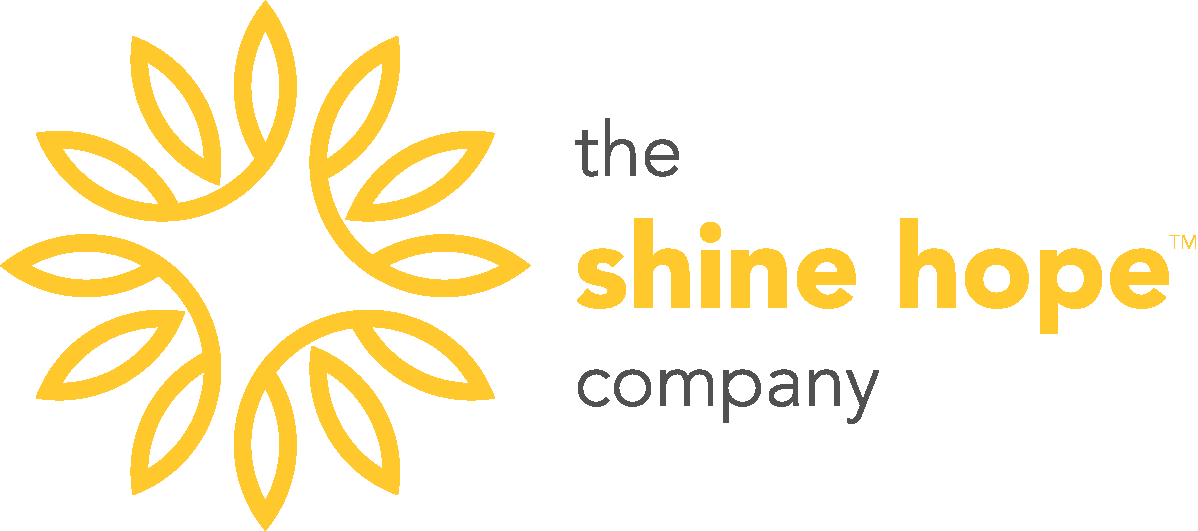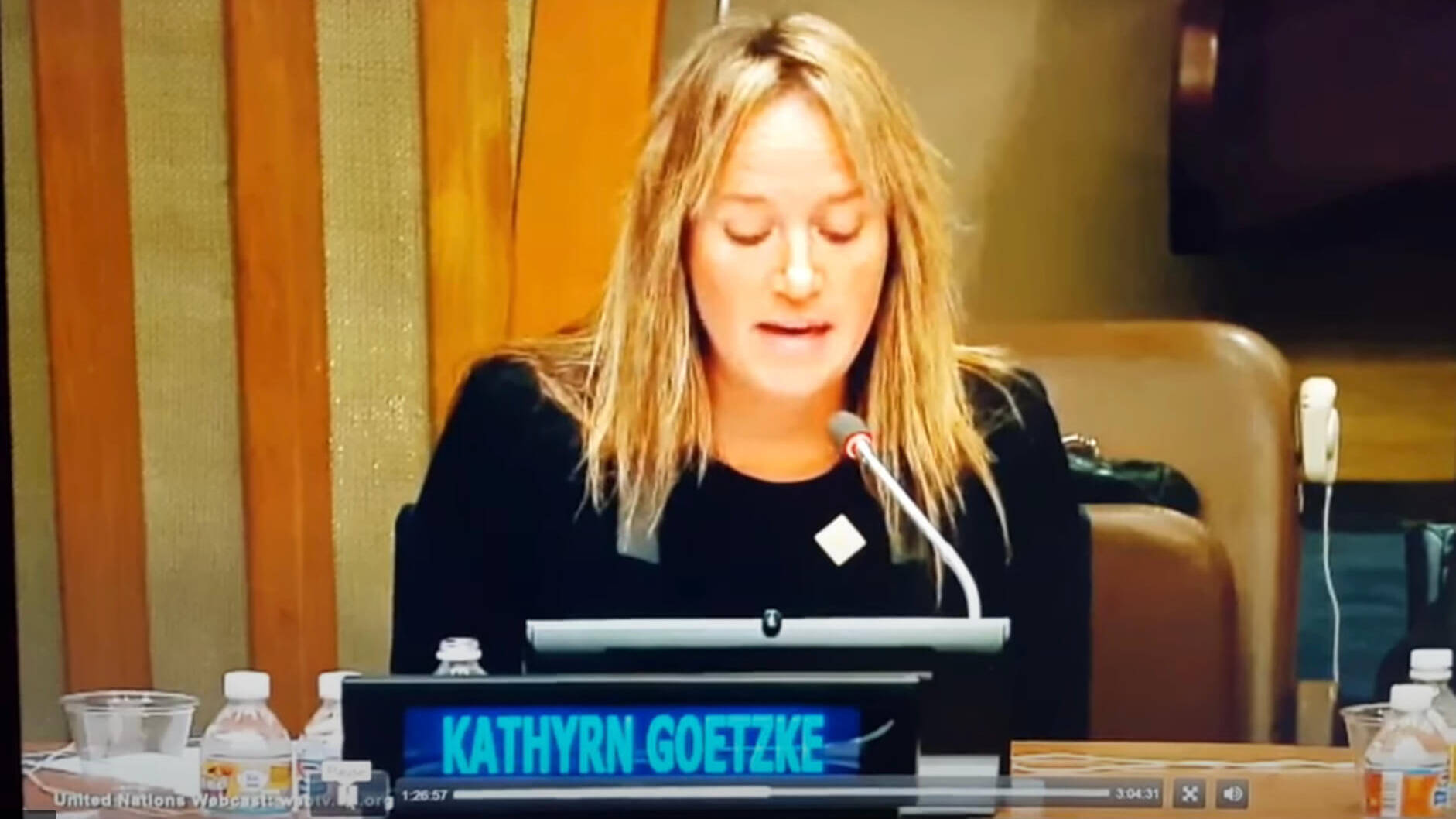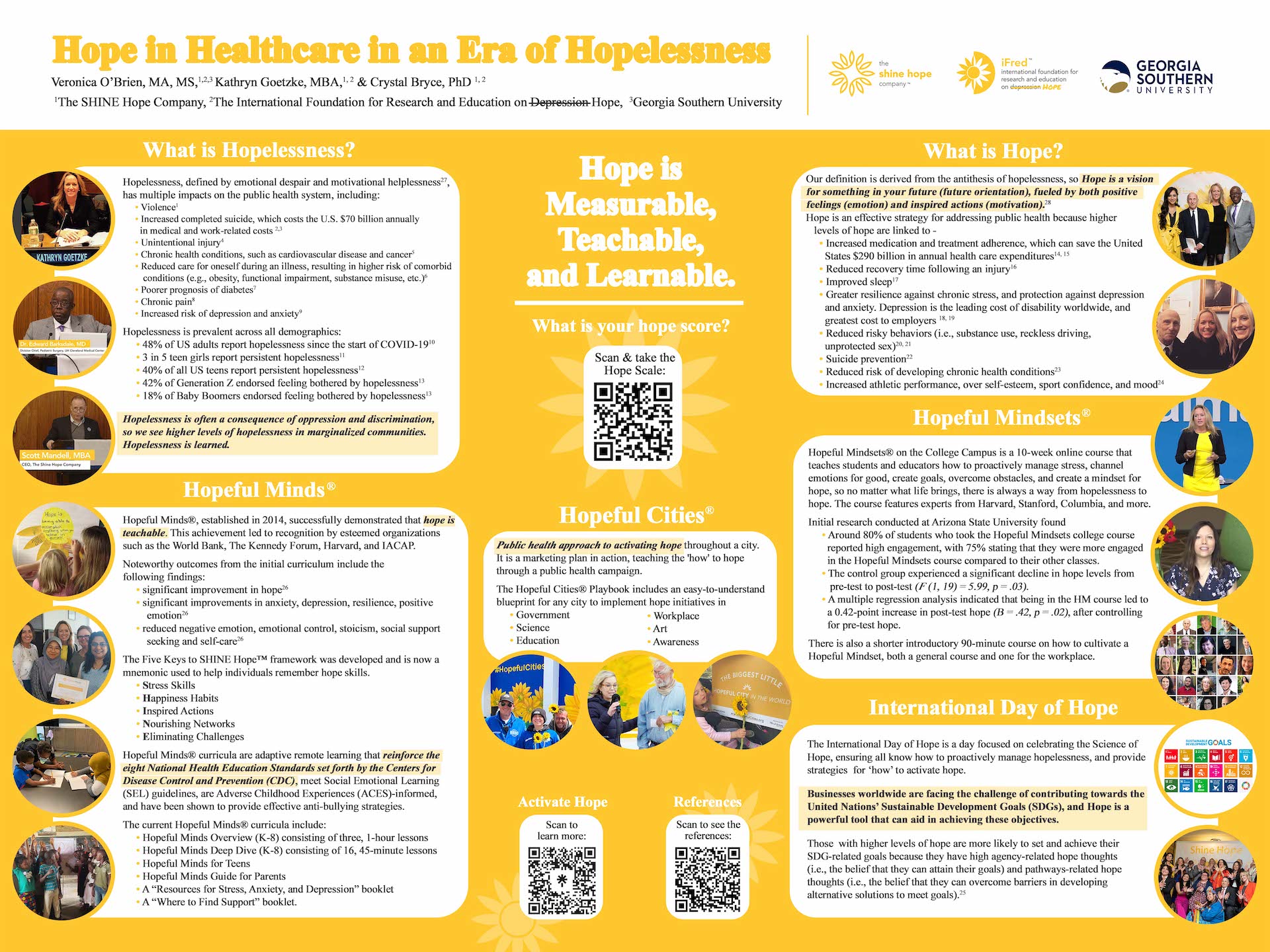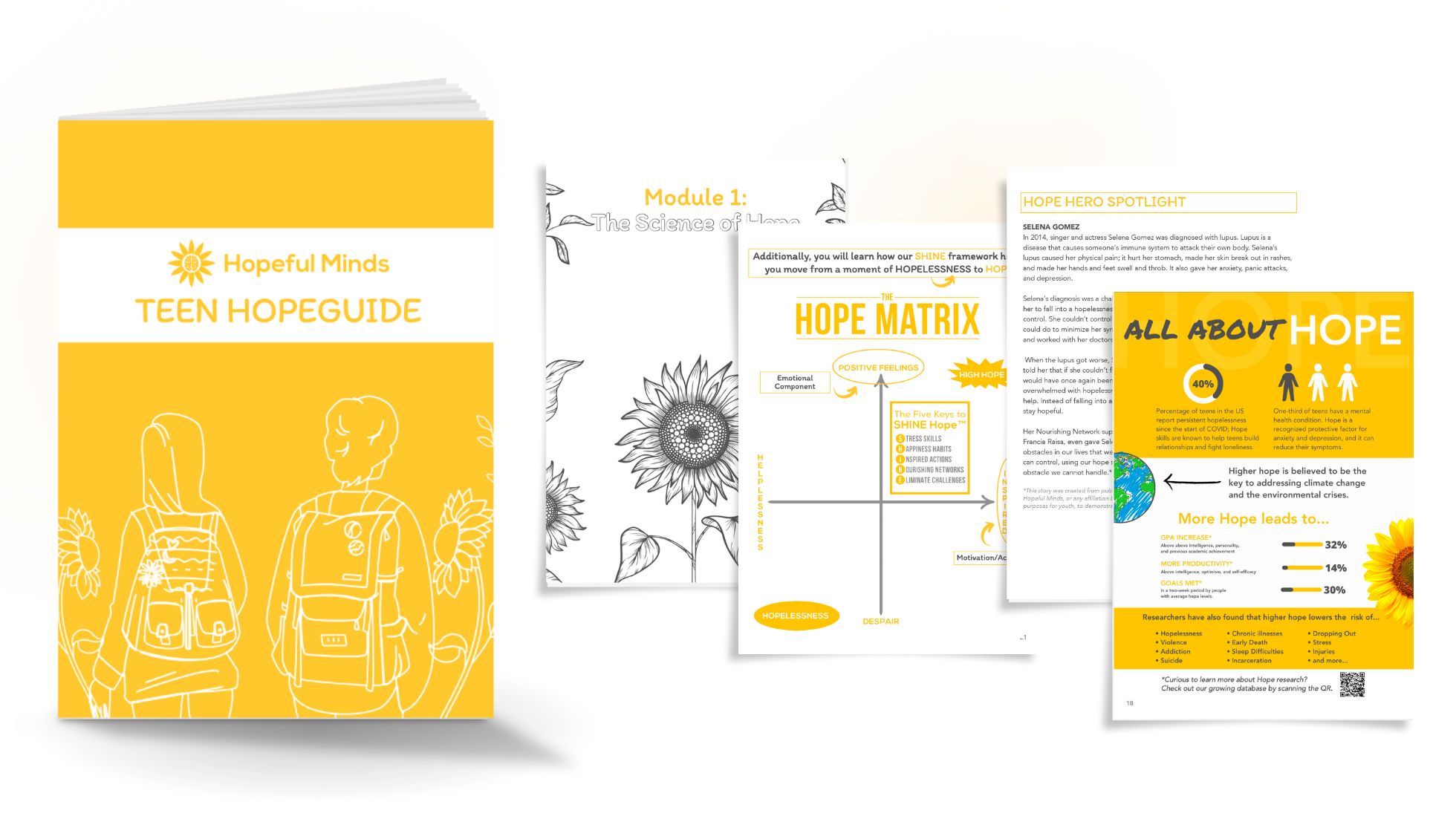We aim to continue advancing our knowledge, publishing and improving. If interested, please reach out to us and partner on a research project to help advance hope science globally.
Email us at activate@theshinehopecompany.com to find out how.
Published Papers:
Findings: Hope, as a stand-alone construct, is a protective factor against many mental and physical health conditions, while serving as a strategy to improve all areas of life.
Findings: Using the Hopeful Mindsets on the College Campus curriculum, we found a significant increase in hope by the end of the 10-week course among college students.
Findings: Using the “Hopeful Minds” 12-week curriculum, the researchers found significant improvements in “each of the well-being scores of anxiety, depression, resilience, positive emotion, reduced negative emotion, emotional control, stoicism, social support seeking and self-care” within their sample.
Findings: With hope education, depression symptoms decreased. Moreover, children improved in their negative emotion regulation.
Findings: Using the “Hopeful Minds” curriculum, the researchers found “increased emotional insight and awareness; improved resilience, confidence, self-belief, and developing new coping skills” within their sample.
Summary: The paper underscores the importance of securing specific and explicit commitments and targets for mental health within the Sustainable Development Goals (SDGs) to ensure that people with mental disorders are not marginalized in the global development agenda from 2015 to 2030. It highlights that the forthcoming negotiations on the SDG goals and targets will determine whether individuals with mental illness and psychosocial disabilities will be included equitably in the post-2015 development program or left neglected.
Summary: The paper discusses the growing recognition of mental health in global development goals, emphasizing its inclusion in the UN's Sustainable Development Goals (SDGs) and the need for clear indicators and action plans to strengthen mental health systems, especially in low-income countries. It calls on the UN, NGOs, civil society organizations, and academia to acknowledge the significance of mental health in achieving the SDGs, promote equity, and monitor progress toward these goals over the next 14 years.
Notable Presentations:
Title: ‘The call for Hope.’ The story of how Hopeful Minds originated to address youth mental health, prevent hopelessness, and suicide in the US.
Title: Hope in Healthcare in an Era of Hopelessness
Title: Addressing the Mental Health Needs of Vulnerable Populations Across Sectors
Kathryn Goetzke addresses the United Nations about the need to prioritize mental health in Sustainable Development Goals at the International Day of Persons with Disabilities December 3, 2015.
Unpublished Papers:
Promoting Hope: Preliminary Investigation into a College-level Hope Curriculum
Findings: The intervention group had a significant increase in hope over the semester. Completing the hope course predicted significantly higher end-of- -semester hope, accounting for the beginning-of- semester hope. Thus, Hope can be taught via a classroom setting using a curriculum that requires limited financial and time resources. Improving college student hope has implications for their academic and well-being outcomes.
(Bryce et al., 2023)
Findings: The Hope curriculum administered to students effectively increased the participants’ understanding of hope.
Summary: The Hope curriculum administered to students effectively increased the participants’ understanding of hope.
Summary: This paper provides a brief literature review of hope-related research and serves as a call to action for more hope-related intervention research.
Summary: The researchers found that the Hope Program increases students’ comprehension of hope through a ten-lesson protocol between the Spring and Fall.
Summary: Through this pilot study, twelve fifth-grade classrooms completed the hope-based curriculum and findings indicated the curriculum successfully improved the students’ understanding of hope.





